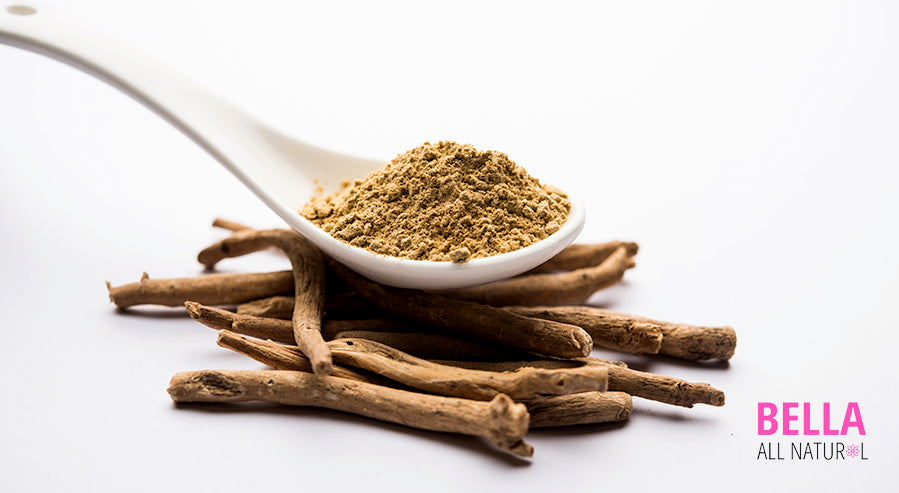

Taking care of our bodies is fairly difficult since the resources we typically need are in short supply. Whether due to a shortage or unreasonable expense, getting the nutrients and products we need to stay healthy can be challenging. In some cases, the inability to care for our health properly is a source of stress that can damage our health further. Stress can cause physical health issues or sometimes only affects our appearance (which is generally preferable to the former).
Normally, we are expected to address stress by engaging in stress relief activities and avoiding stressful situations. Most do not realize that stress is a biological response that can be counteracted via biological agents. More accurately, consuming certain substances can help reduce the physical effects of stress so we do not have to endure some of the more unpleasant consequences.
Several compounds are marketed for stress relief, but not all are effective for that purpose. Despite the marketing behind many anti-stress substances, they exist, but most are not as simple as you might expect. Anti-stress products need a specific type of compound to be effective; otherwise, most of the natural tools against stress might be false leads.
The compounds in question are called adaptogens and are among some of the most effective natural treatments for stress. Adaptogens are powerful but not well understood by those who do not actively use them. Therefore, you might not know what kind of healing abilities they have.
What Are Adaptogens?
If you are unfamiliar with the particulars of adaptogens and have likely never heard of them before now. This is because adaptogens are not a type of medicine nor a brand of product that we can purchase at a store. They are a class of plants that have specific characteristics that, in turn, reduce the physical impact of stress on the body.
More accurately, adaptogens are herbs, roots, and other plants or substances derived from them that reduce stress in the body. Multiple types of adaptogens come from different growths but are equally effective for enhancing our physical response to stress.

Considering that most adaptogens are derived from fairly typical plants and mushrooms, you might wonder what makes them so special compared to other plants. Compared to other plants, the main benefit of adaptogens is that they possess 3 distinct qualities that distinguish them. These qualities are:
- A plant must be non-toxic when consumed in normal doses to qualify as an adaptogen.
- A plant must have a chemical effect that helps the body cope with stress to qualify as an adaptogen.
- A plant must restore the body's balance (homeostasis) to qualify as an adaptogen.
Unlike certain compounds, adaptogens must meet all 3 criteria to qualify, and only meeting 1 or 2 means it is not an adaptogen. Some plants meet one or more of the criteria without meeting the 3rd. Because of this, certain plants might be mistaken for adaptogens despite not actually qualifying. These traits are very difficult to cultivate in a single organism, meaning adaptogenic plants are harder to come by than most realize.
Most adaptogenic plants are unknown to the average consumer unless they actively research them. Despite that, one of the most effective adaptogens is commonly used in mundane supplements and occasionally in cuisine. The adaptogen in question is ashwagandha.
What is Ashwagandha?
Withania somnifera, better known as ashwagandha, is an evergreen shrub from the nightshade (Solanaceae) family of plants. While the relationship between ashwagandha and nightshade might give you pause (considering the latter is extremely poisonous), ashwagandha is safe for consumption.

As a matter of fact, ashwagandha has been safely consumed by Indian, African, and Middle Eastern natives for centuries since it was first discovered. Originally, ashwagandha was primarily used as a sleep aid, for which it was named since "somnifera" translates to "sleep-inducing." While the original use of ashwagandha is valid since it has been linked to sleep benefits, its main value is as an adaptogen.
Ashwagandha meets all 3 criteria of adaptogenic compounds, making it a viable choice for anyone looking to take advantage of what they offer. Additionally, ashwagandha compounds its unique abilities with its adaptogenic effects, creating a doubly effective supplement. While knowing what an adaptogen is and identifying ashwagandha as one is important, another question is likely pressing in your mind: What benefits do adaptogenic compounds offer?
What is Stress?
Stress is one of the leading issues in modern society and one of the few problems that have progressively gotten worse as humanity has grown. There has never been a period in which we have not experienced stress, but the causes for our stress have grown exponentially due to 2 factors.
The first is that the population explosion has led to a downturn in natural resources we can use to stay alive. The second is the growing economic crisis caused by the reduced resources that have made day-to-day living an uphill battle for certain citizens. There are other details that can increase the amount of stress the average person experiences, and these details can be detrimental to our mental and physical health.
Despite being a constant in our history, many misunderstand stress and either underestimate or overestimate its effects on our health. Increased levels of stress lead to physical symptoms like chest pain and headaches, which contributes to a misconception that stress can kill.

In reality, stress is not fatal, but the physical symptoms it can cause are deeply unpleasant and can affect our interpersonal relationships and day-to-day activities. The main issue with stress is that it can cause other mental health issues equally detrimental to us. It is important to note that stress cannot cause serious mental health conditions as outlined in the Diagnostic and Statistical Manual of Mental Disorders, Fifth Edition (DSM-5).
Rather, stress is a universal catalyst for bouts of depression and anxiety. The biggest issue is that stress can be caused by mundane factors in your life and exacerbated by increasingly minimal tasks. For example, you might be stressed out due to a tight deadline at work, which is reasonable. However, that stress can elevate if anything else goes wrong, such as your toaster breaking while trying to make breakfast. While the latter is a minor inconvenience in the long run, it can seem world-ending to someone overly stressed.
One of the main consequences of stress is a spike in anxiety, another issue closely related to stress. Understanding the effects of anxiety is critical if you are regularly stressed out by anything in your personal or professional life.
What is Anxiety?
Contrary to popular belief, there is a difference between anxiety and an anxiety disorder often lost on the average individual since the effects are fairly similar. Despite this, anxiety is an extremely devastating mental health problem that affects countless people regardless of whether they have a disorder. In fact, it is completely normal to experience anxiety if you do not have a disorder since it is a common response to stress and the unknown.
Whenever we encounter an unclear outcome, we feel anxious because we do not know what to expect. Nevertheless, repeated exposure to certain stressors can cause an anxiety disorder, especially when exposed to a traumatic incident. Anxiety is best described as a sensation of fear and dread occasionally accompanied by certain physical symptoms (i.e., sweating or an elevated heart rate).
Generally, bouts of anxiety are harmless and fade once we overcome the unknown obstacle. Unfortunately, the situation becomes more severe if our anxiety is allowed to develop into a disorder.

Anxiety disorders can be crippling and prevent us from engaging in essential activities because we are too anxious to try. This can lead to crippling phobias that prevent us from functioning in society. For example, some people might be so anxious about phone calls due to past experiences that they are incapable of making a phone call despite urgently needing to.
Furthermore, anxiety disorders can cause disproportionate emotional responses to certain stressors that can be easily managed. Fortunately, developing an anxiety disorder is extremely difficult since we must be exposed to extreme stimuli. Unfortunately, some people are at higher risk than others due to certain factors outside our control. The demographics most at risk for an anxiety disorder include:
- Anxiety disorders are common in individuals with certain personality traits like shyness. This can make social interaction or being placed in unfamiliar environments extremely stressful.
- Anxiety disorders are common in individuals who endured a traumatic incident in early childhood or adulthood. For example, being involved in a major car accident at a young age can make driving a major source of anxiety.
- Anxiety disorders are common in individuals with a family history of anxiety and other mental health conditions.
- Anxiety disorders are common in individuals with certain physical conditions (i.e., thyroid problems). High-risk health issues can be stressful and cause you to take fewer chances with your health. This makes minor risks to your health huge sources of anxiety.
The final risk factor is that women are more likely to develop anxiety disorders, but the reason is not fully understood. The leading theory is that the hormones in the female anatomy can contribute to anxiety. There is a counter-theory that testosterone (the male sex hormone) eases anxiety, so men are less likely to develop these conditions.
These are only theories that have not been proven, making them unimportant to the matter at hand. All that matters is that anxiety disorders can be crippling, and a high-stress lifestyle contributes to the risk of developing one. Therefore, we come to the focus of this article and discuss how adaptogenic substances can be used to reduce one or both issues.
Ashwagandha Reduces Stress & Anxiety
While several pharmaceutical compounds can reduce stress and anxiety, being on prescription medication can occasionally make the problem worse. Being on medication can cause your anxiety to spike since you perceive yourself as "flawed" despite that not being the case.
Fortunately, several studies have determined that ashwagandha produces a natural effect to manage stress and, by extension, anxiety.

Ashwagandha has been linked to reduced cortisol levels and other heat shock proteins contributing to stress. This was confirmed by a small study in which 58 participants were divided into test and control groups. The groups were divided as follows:
- Test Group 1: This group received 250 milligrams of ashwagandha extract daily for 8 weeks.
- Test Group 2: This group received 600 milligrams of ashwagandha extract daily for 8 weeks.
- Control Group: This group received a placebo daily for 8 weeks.
The study determined that the subjects in both test groups had drastically reduced cortisol levels compared to the control group. This resulted in reduced stress and anxiety levels and improved sleep quality in the patients. Another study further confirmed that ashwagandha reduced anxiety levels and made it easier for test group subjects to function daily. Reducing the former reduces the latter because of how closely related stress and anxiety are.
Most adaptogenic compounds share the ability to reduce stress, which helps reduce anxiety and minimize the risk of major depressive episodes. However, you should consult a mental health professional if you are experiencing symptoms of any mental health issue. Adding an adaptogen to your diet can be extremely beneficial for stress reduction.
Keeping it All Natural!
We at Bella All Natural have always maintained that natural compounds are ideal for healing the body since we are designed to incorporate them. This is not to say that modern medicine does not have an important place in our society, but that a more holistic approach can sometimes help. If you want to avoid using anti-anxiety medications off the bat, an adaptogenic substance like ashwagandha can be an excellent first step.

The problem is usually finding a reliable supplement that has not been adulterated by unnecessary ingredients. Fortunately, our Golden Ashwagandha meets that criterion and provides a daily dose of pure ashwagandha powder. We encourage you to visit our website and try our product, but no matter your decision, remember always to keep it All Natural!



